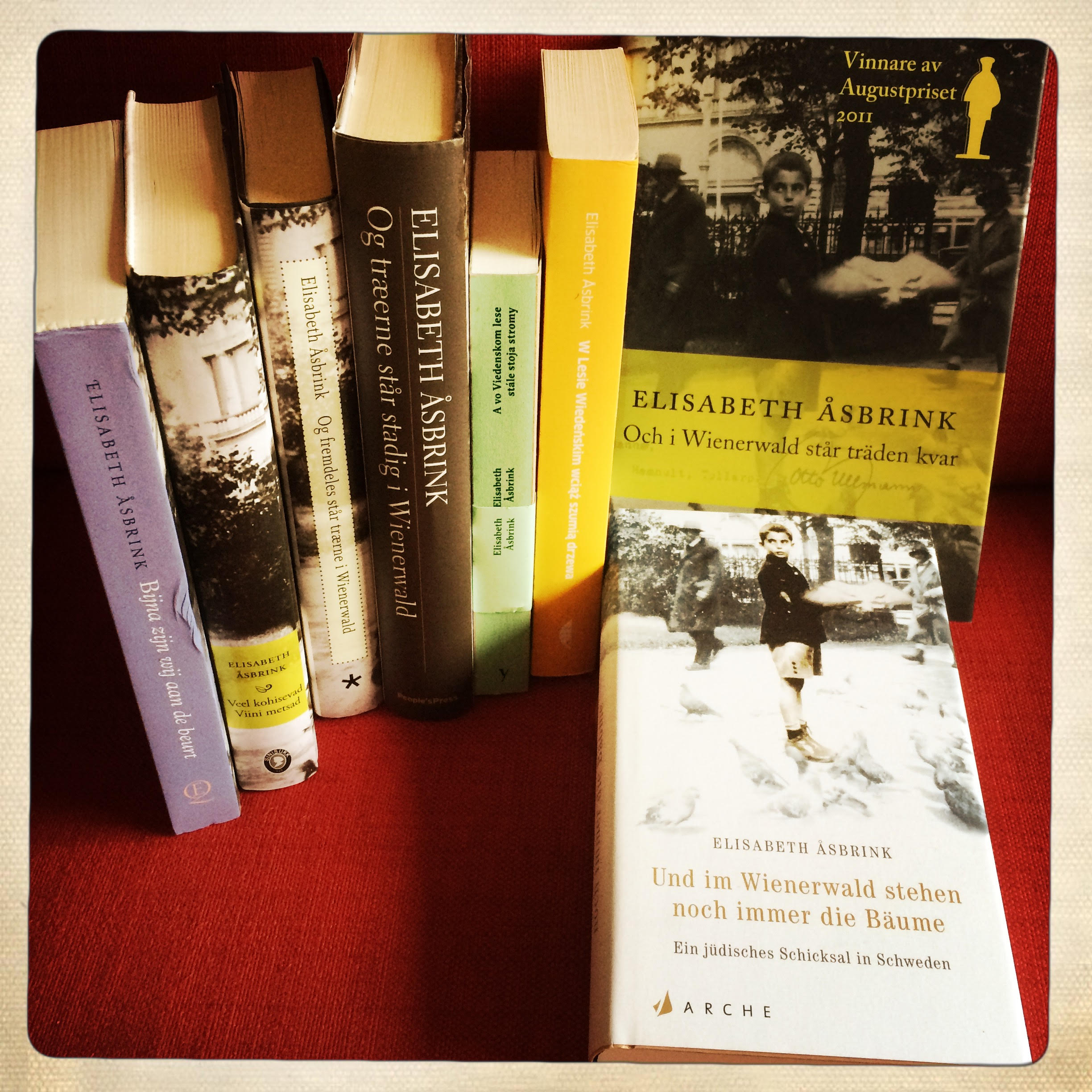Top-notch microcosmic World War II history and an excellent illustration of the immense power of the written word. Kirkus Review
This devastating account has the lyricism and complexity of a finely wrought novel. Publishers weekly
Parentless smiles. Letters to an orphan of the Holocaust. Caroline Moorehead, TLS
Elisabeth Åsbrink diligently explores the darker side of Sweden’s past. The Literary Review.
*
Und im Wienerwald stehen noch immer die Bäume. Perlentaucher
Elisabeth Åsbrinks bewegendes Enthüllungsbuch Ein jüdisches Schicksal in Schweden
Åsbrink brings us a testimony, that must be remembered and is as urgent as unbearable Politiken
A fascinating story of a impossible friendship Jyllands Posten
In beautiful prose the author brings history of suffering to the present BT
A beautiful and riveting story Weekendavisen
A masterpiece … The stack of letters from the war is in itself an unprecedented basis for a documentary work about the Jewish and Nazi atrocities. But Elisabeth Åsbrink is more than a journalist, more than an observing chronicler. She is a poet. Gently she weaves her own family’s fate, and her research into history. With the touch of a fiction writer she brings the over 70-years-old drama to new life. With a pen of a poet she revives a story that could have been forgotten. Page after page I´m impressed by Åsbrinks sence of language, her outstanding communication skills, her superior literary endowment. Tom Egeland, VG
A dramatic and masterly put together showdown with Swedish rasicm between the wars. (…) Åsbrinks book is more than very good, in the multicultural Norway it is also completley up to date. Arnhild Skre, NRK
The watershed of the book consists primarally in that Åsbrink masterfully portrays an individual: The destruction of one man constitutes the loss of an entire world. Secondly, she shows the prevailing attitudes towards the Jews in Sweden during the 1930s and 40s, with its hateful and crude expressed prejudices, and the politicians equally prejudiced reasons for preventing Jewish immigration. The parallels to the current immigration and refugee debate is sadly striking. Kristine Næss, Klassekampen
A winner of the August prize: working with the echo as a material
Hufvudstadsbladet, Helsingfors
A family tragedy makes evil palpable Svenska Dagbladet
”Beloved boy” Expressen
The great Swedish oblivion Helsingborgs Dagblad
Living history Aftonbladet
Every word carries heavy weight Uppsala Nya Tidning
A locked country Sydsvenska Dagbladet
Double-show in Småland Västerbottens-Kuriren
The past in the brightly lit mirror of today Tidningen Kulturen
And in Wienerwald the trees are still standing Dagens Nyheter
And in Wienerwald the trees are still standing Göteborgsposten



